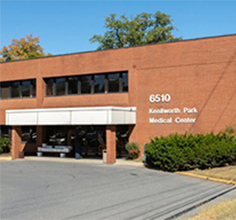
It has been proven for a long time that physical health and mental health are intertwined. According to the World Health Organization, “health is a state of complete physical, mental, and social well-being and not merely the absence of disease or infirmity." Therefore, it is not possible to achieve a state of complete health until mental health is also in a good state. Unfortunately, one in five adults in the United States lives with a mental illness, and even though the importance of mental health is proven, most of these adults still cannot receive proper treatment. One of the best ways to address this issue is through the proper integration of primary and behavioral health care. Allowing patients to have access to mental health help in primary care institutions is a great way to put a stop to.
A lot of people, particularly in rural and low-income areas, don’t have access to ready mental health care, and due to a lack of access, they might find themselves dealing with more serious problems. However, if the primary health center they readily go to also offers mental health services, these patients may benefit from this practice. In this scenario, the most appropriate place for these patients is a primary health care center.
One of the biggest issues in mental health is that diagnosis of mental health diseases is delayed and usually grows, while through primary care settings, they can be diagnosed early, and this way, early treatment and management are made possible.
Most of the time, various physical health disorders accompany mental disorders. For example, depression and anxiety are more common in those with long-term conditions such as diabetes, heart disease, or cancer. Through integrating mental health with primary care, better management of these comorbidities can be expected.
Through approaching the patient as a whole, mental and physical health concerns are addressed together. Studies show that holistic approaches give better results. The more thorough health management that results from this holistic care approach enhances patient satisfaction and outcomes.
Even though it’s getting better, there’s still a strong social stigma attached to mental health disorders. Adding mental health services to primary care lowers the stigma attached to getting help for mental health issues. It is a way to show society that mental health disorders are just as important as physical disorders, and this way, patients who were previously uncomfortable with the idea of seeking help will feel more at ease talking to primary care residents about mental health issues.
All things considered, incorporating mental health into primary care raises the standard of treatment overall, increases patient access, and improves individual health outcomes. We at Southern Maryland Medical Group give importance to the total well-being of our patients. Our professional primary care doctors are ready to answer any questions you might have regarding your health. Call us today and schedule your appointment.
Southern Maryland Medical Group has 3 convenient locations to provide professional medical care services in the Southern Maryland area. Call or schedule an appointment with one of our locations to get medical care help.

5801 Allentown Road, Suite 400 Camp Spring, MD 20746
Phone: 301-868- 0150
Billing Inquiries: 301-552-1270
Fax: 301-868-0243

7500 Greenway Center, Dr #1200 Greenbelt, MD 20770
Phone: 301-486-7580
Billing Inquiries: 301-552-1270
Fax: 301-486-7581

6510 Kenilworth Ave, Ste 1400, Riverdale MD 20737
Phone: 301-618-0771
Billing Inquiries: 301-552-1270
Fax: 301-618-0772